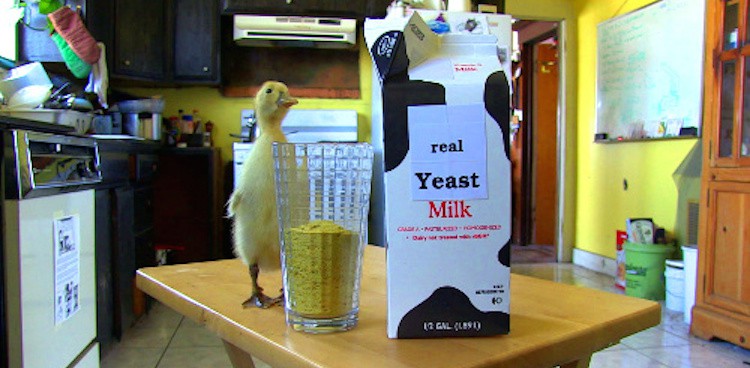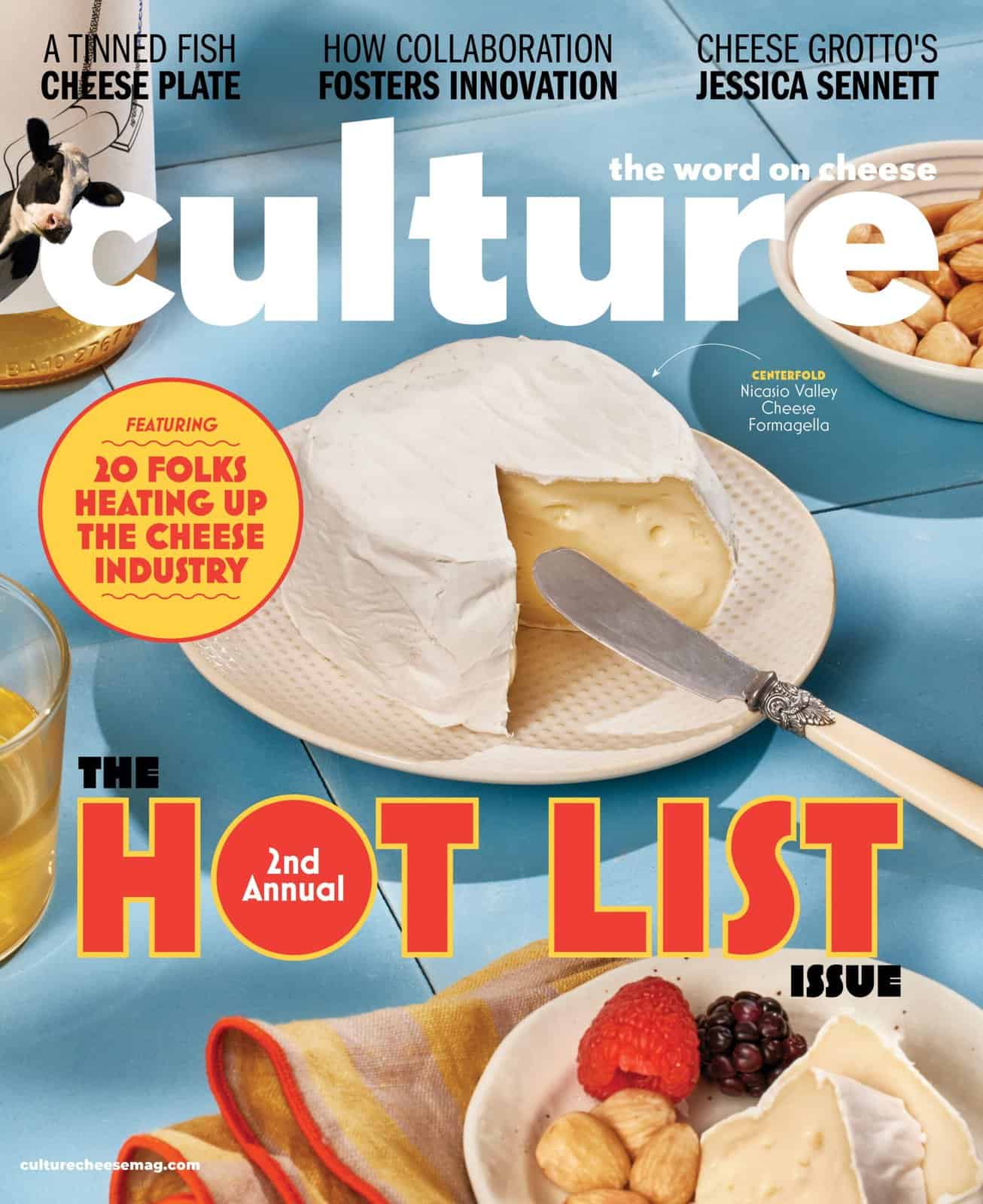
The cheese world is no stranger to DIY projects. From mascarpone to cheese caves, you don’t need to be a cheese professional to start making it from home. But recently, two cooperating groups of fanatical vegan “biohackers” from California (Counter Culture Labs in Oakland, CA and BioCurious in Sunnyvale, CA) have upped the ante, working to create a vegan cheese with all the same traits as the animal product.
Cheese stalwarts have long declared vegan “cheese” as a sin to good dairy. Some options are good of their own accord, says The Huffington Post, but they still fall way short of the real thing. That’s because the vegan knockoff attempts to use plant substitutes for milk, along with vegetable coagulants and bacteria. While thistle rennet has its place–a primary ingredient in many Portuguese cheeses like Serra de Estrela–the proteins in plants and animals are worlds apart.
The scientists, according to their funding campaign on Indiegogo, are changing the conversation, though. Using synthetic biology, they hope to make simple baker’s yeast into “milk-protein factories,” churning out real milk proteins (known as caseins). These milk proteins are then combined with water, vegan sugar and oil to make a kind of milk which is ultimately converted into Real Vegan Cheese using the age-old cheese-making process.” In the early stages, genes within the yeast are reprogrammed to mirror those in mammals–a genetic clone, if you will. However, despite this modification, the makers swear that the final product will be GMO-free.
While we genetically modify yeast, the yeast itself is not eaten, and the resulting milk-protein is separated from the GMOs before being turned into cheese. This method has been used for many years to produce safe medicines and foods such as insulin and vanilla flavoring. In fact, the rennet used in most cheese today is produced using this same method.
This effort is part of the “biohacking” movement, in which home enthusiasts combine the inventiveness of DIY biology with the explorative, no-limits ethic of the hacker. Participants hope to keep what they produce as open source, emphasizing the advancement of knowledge over moneymaking potential. If someone else has proper funding, they’re free to explore the project further without having to request or buy any rights. According to CNET, “the project’s results will be available under free and open licenses, though the team cautions that the research and development phase could be extensive.” There are also the costs of testing; vegan cheese won’t be deemed safe for human consumption until a battery of tests have been passed, and then there’s also FDA regulation too (and we all know the headache that can cause).
Technology continues to do some radical things, but we’re pretty satisfied with the way (real) cheese is right now. Cheese on!
Read more and donate to the Real Vegan Cheese Indiegogo
Photo Credit: Counter Culture Labs/Biocurious via Indiegogo




